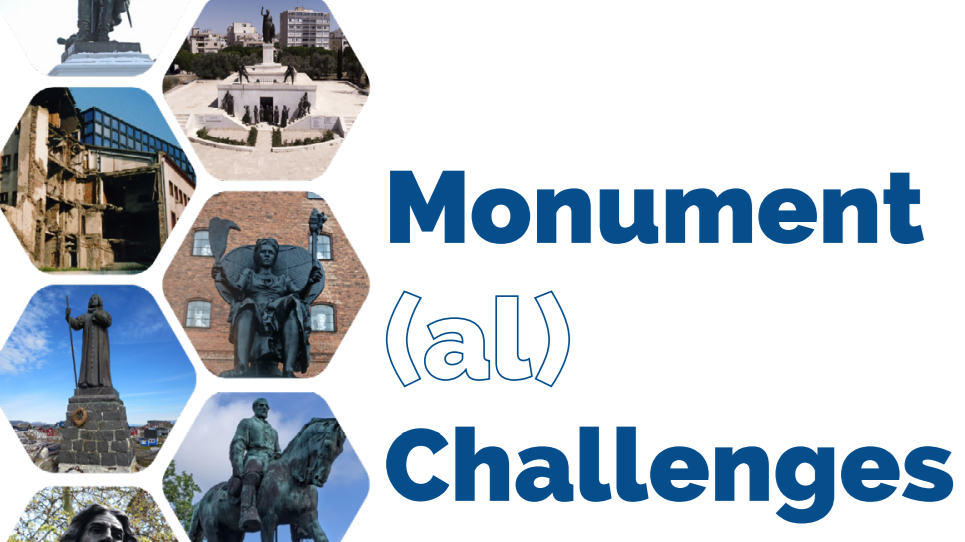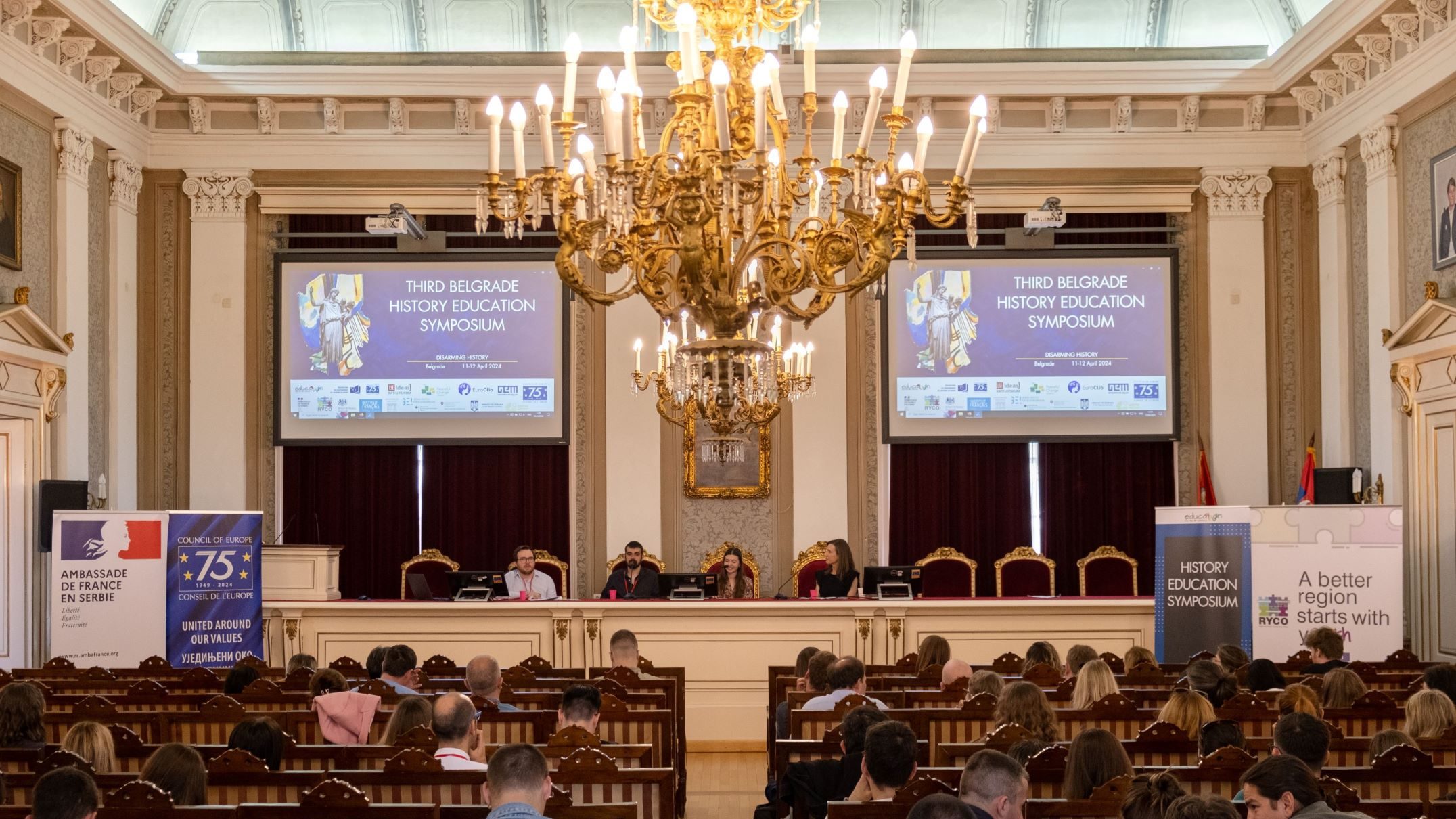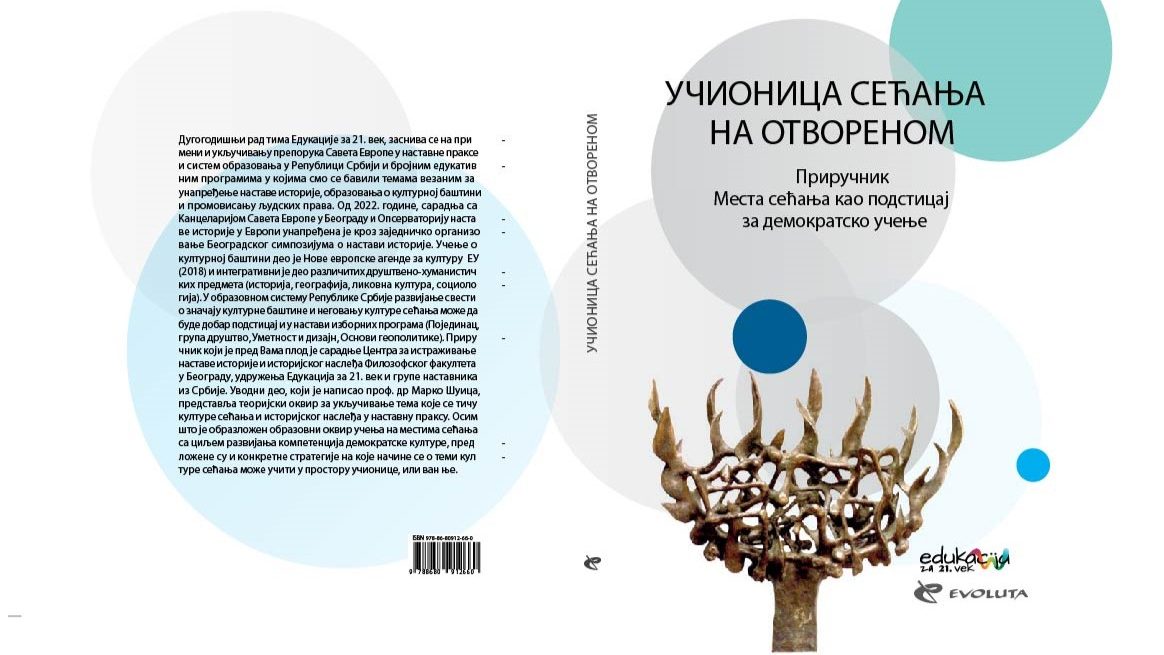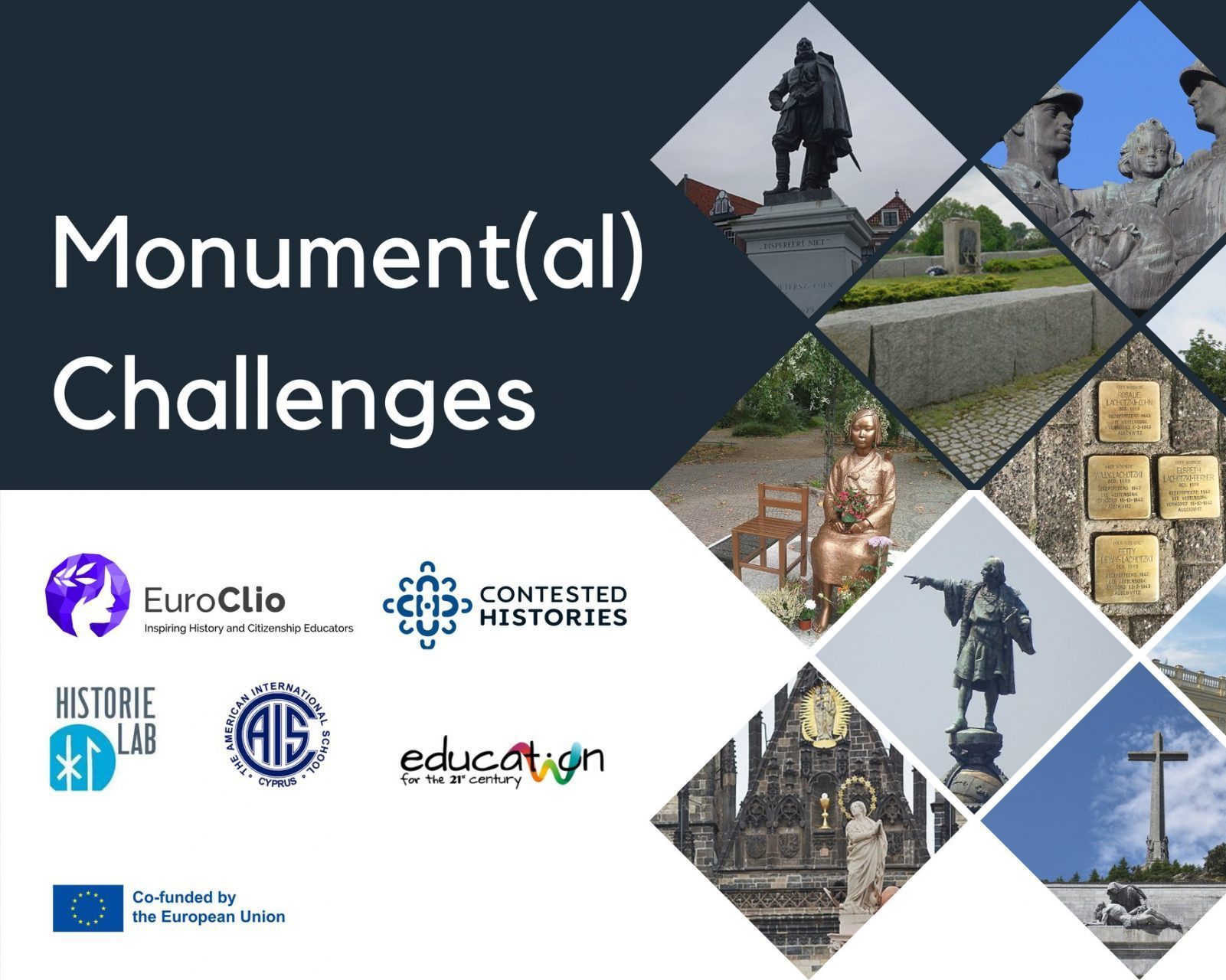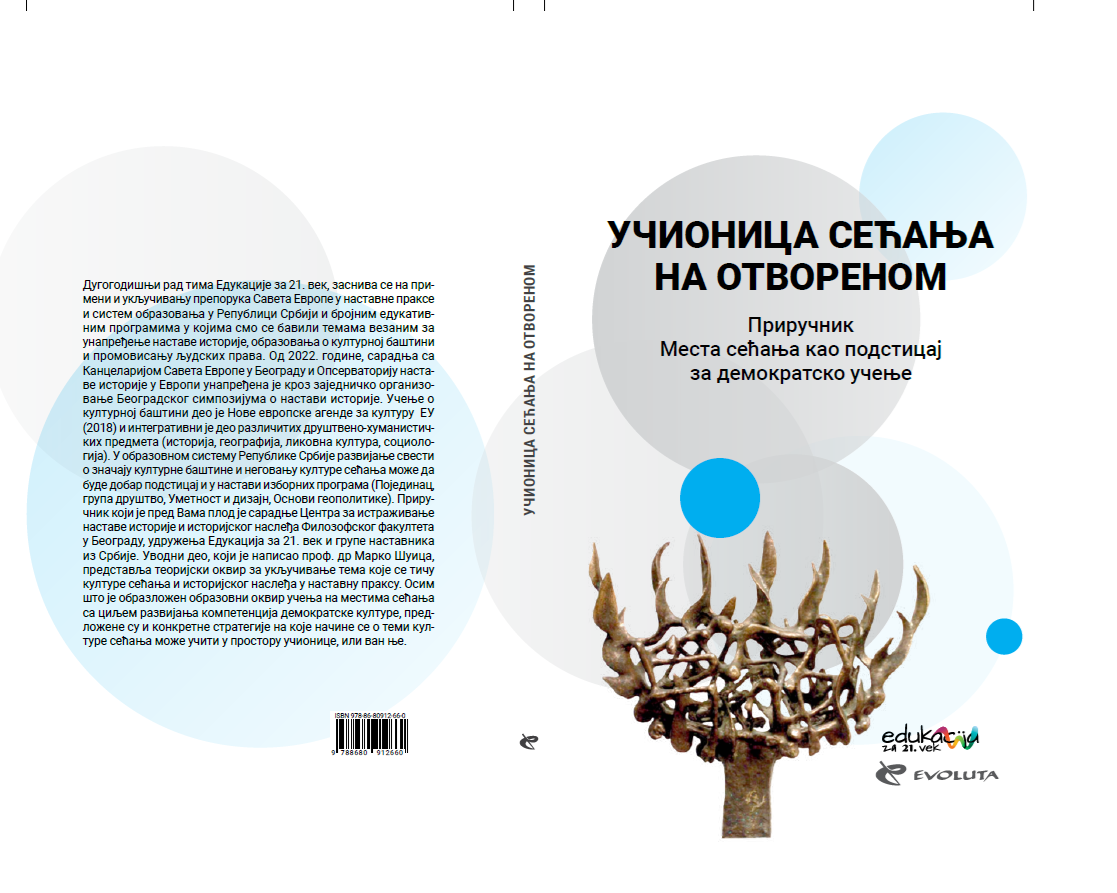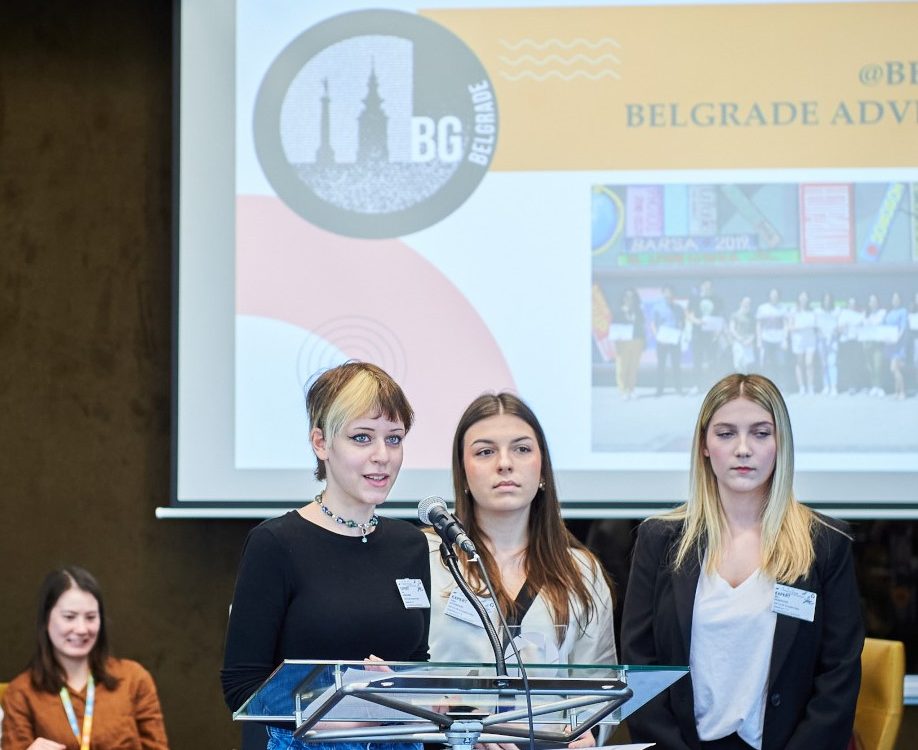Priručnik Monumental challengies
Projekat Monument(al) Challenges, koji se sprovodi u saradnji sa inicijativom Contested Histories Initiative ima za cilj da odgovori na neke od izazova sa kojima se nastavnici širom Evrope u nastavi istorije. Konkretno, smatramo da nedostaju materijali za nastavnike koji omogućavaju razgovor o osetljivim i složenim istorijskim temama. Tako je nastao priručnik koji nudi različite materijale za nastavnike koji žele da van učionice razgovaraju o kontroverznim istorijskim temama na osnovu analize spomenika širom sveta. Priručnik će uskoro biti preveden i dostupan na srspkom jeziku.
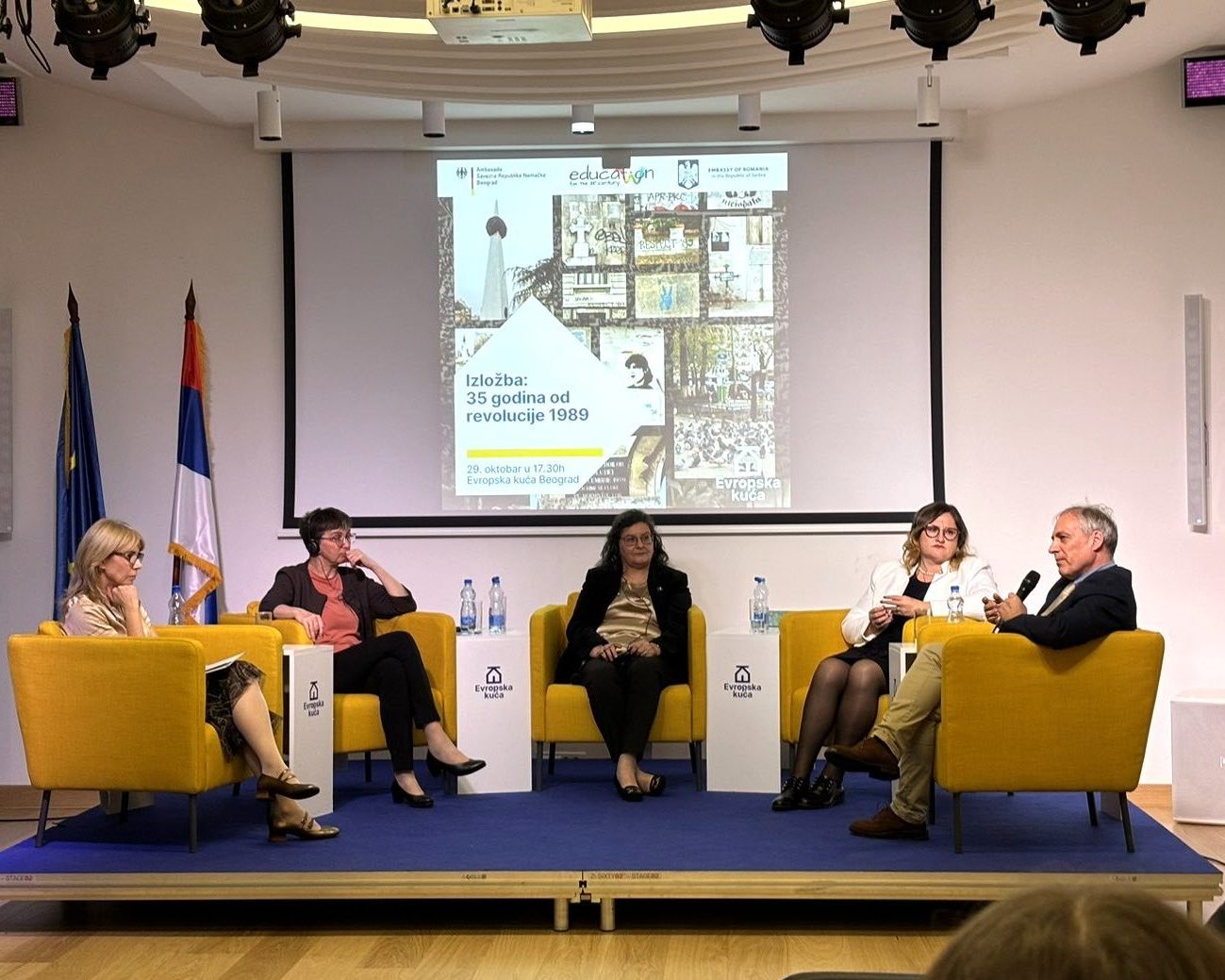
35 godina od Revolucije 1989. godine
U saradnji sa Ambasadom Republike Rumunije, Ambasadom Savezne Republike Nemačke, Delegacijom Evropske Unije organizovali smo panel diskusiju, uz prateću izložbu, povodom obeležavanja 35 godina od Revolucije 1989. godine u Rumuniji. Uz goste iz akademske zajednice Rumunije i Srbije, na panelu su govorili i ambasadori dve zemlje koji su razmenili svoje iskustvo i stavove o ključnim istorijskim dogaðajima kojima je okončan period Hladnog rata.
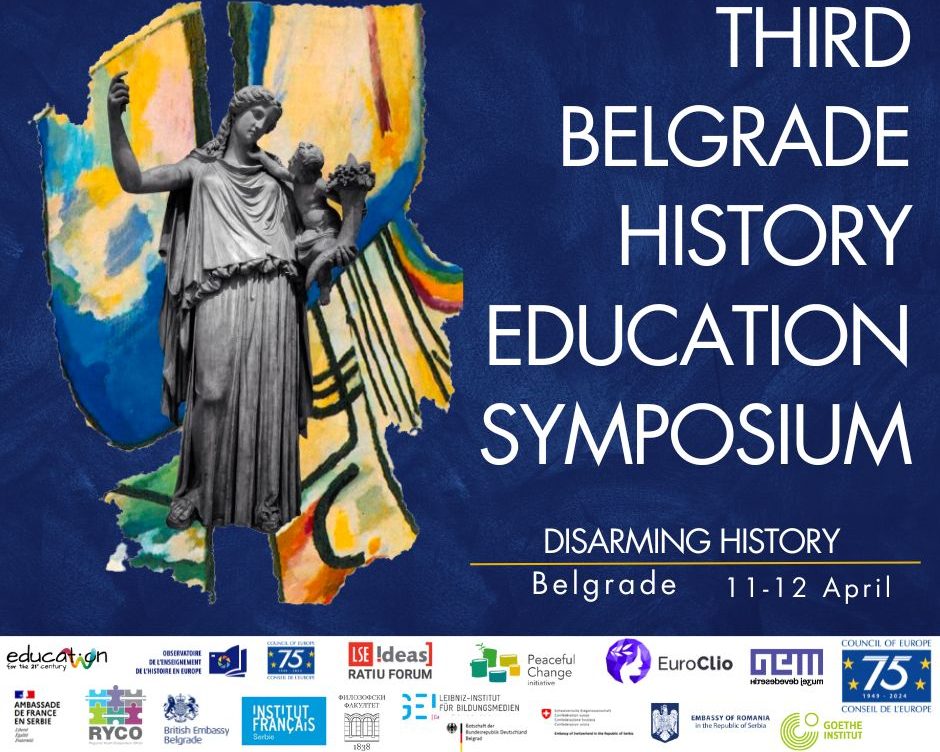
Treći beogradski simpozijum o nastavi istorije
Beograd je ponovo bio mesto inspirativnog simpozijuma o nastavi istorije pod nazivom "Razoružavanje istorije"! 11. i 12. aprila stručnjaci i eksperti iz različitih delova sveta okupili su se u našem gradu kako bi razmenili inovativne prakse u nastavi istorije. Već tri godine ovaj simpozijum predstavlja neizostavan događaj za sve koji se bave obrazovanjem. Simpozijum koji se odvija na različitim mestima u Beogradu, redovno prate i zanimljive ture za učesnike na kojima istovremeno ukazujemo na različite perspektive sagledavanja kulturno-istorijskog nasleđa.
Učionica sećanja na otvorenom
Izašao je iz štampe Priručnik Učionica sećanja na otvorenom. Zahvaljujući kreativnosti i posvećenosti nastavnika koji su učestvovali na našem konkursu "Mesta sećanja-kao podsticaj za demokratsko učenje", odabrali smo 21 pripremu za čas/projektnu aktivnost, koje će biti štampane u Priručniku. Urednički odbor je prihvatio pripreme koji mogu inspirisati i druge nastavnike a koje su povezani s kulturnim nasleđem lokalnih zajednica, ističući važnost demokratskih vrednosti, ljudskih prava i kulturne raznolikosti. Izražavamo zahvalnost svima koji su učestvovali i delili svoje ideje.
HISTOLAB nagrada Saveta Evrope za BeoTuru
HISTOLAB nagrada za Inovativne školske projekte u obrazovanju iz istorije Saveta Evrope dobilo je osam škola iz Francuske, Irske, Srbije, Španije i Turske. Među dobitnicima je bila i Beotura iz Srbije. Učenici i nastavnici iz nagrađenih škola primili su nagradu tokom HISTOLAB Evropskih dana inovacija u obrazovanju iz istorije 2024. Ovaj događaj je poslužio kao mesto okupljanja za nastavnike istorije, profesore, istraživače, praktičare, mlade stručnjake i studente kako bi razmenili ideje.
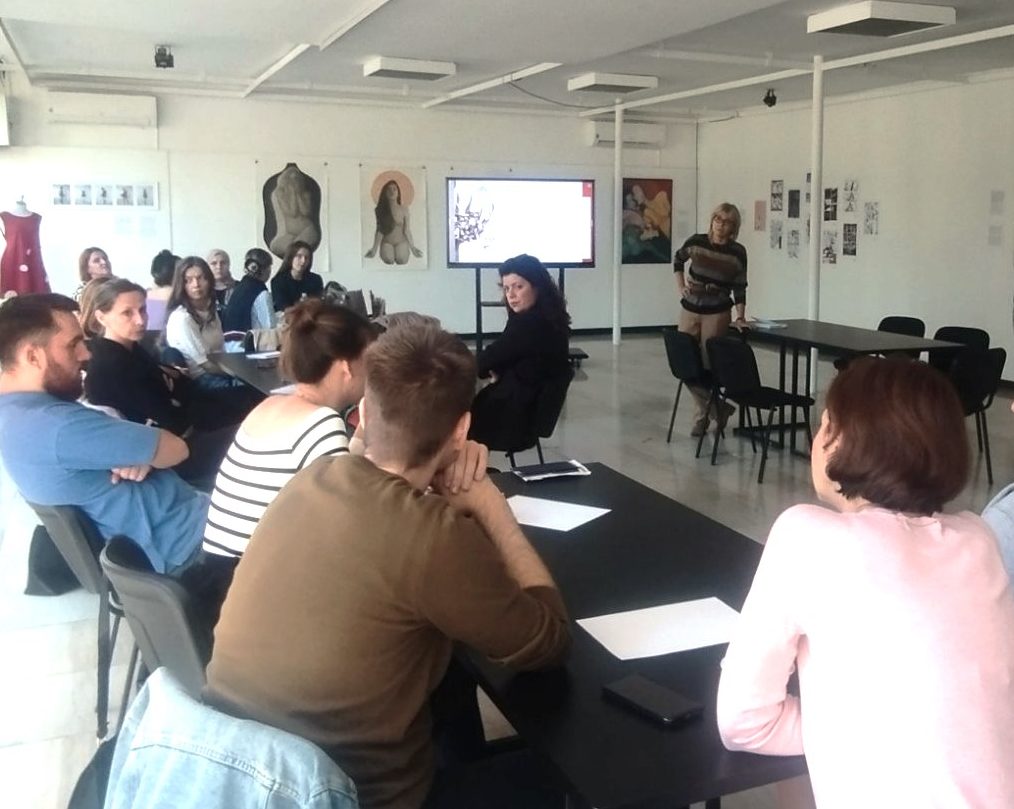
Lavirint devedesetih
U Sarajevu je 20. i 21. septembra organizovan seminar za nastavnike iz Bosne i Hercegovine i Srbije u sklopu izložbe "Labirint devedesetih" Muzeja devedesetih u Historijskom muzeju BIH. Tokom dva dana nastavnici su, zajedno sa učenicima Prve gimanazije iz Sarajeva istraživali događaje devedesetih kroz intigantnu izložbu o devedestim godinama.
Nastavnici i profesori iz našeg udruženja i iz Udruženja nastavnika i profesora historije Euro Clio HIP BiH osmislili su i realizovali radionice na kojima su predstavljene nove strategije učenja van učionice kroz istraživanje lokalnog spomeničkog nasleđa.

